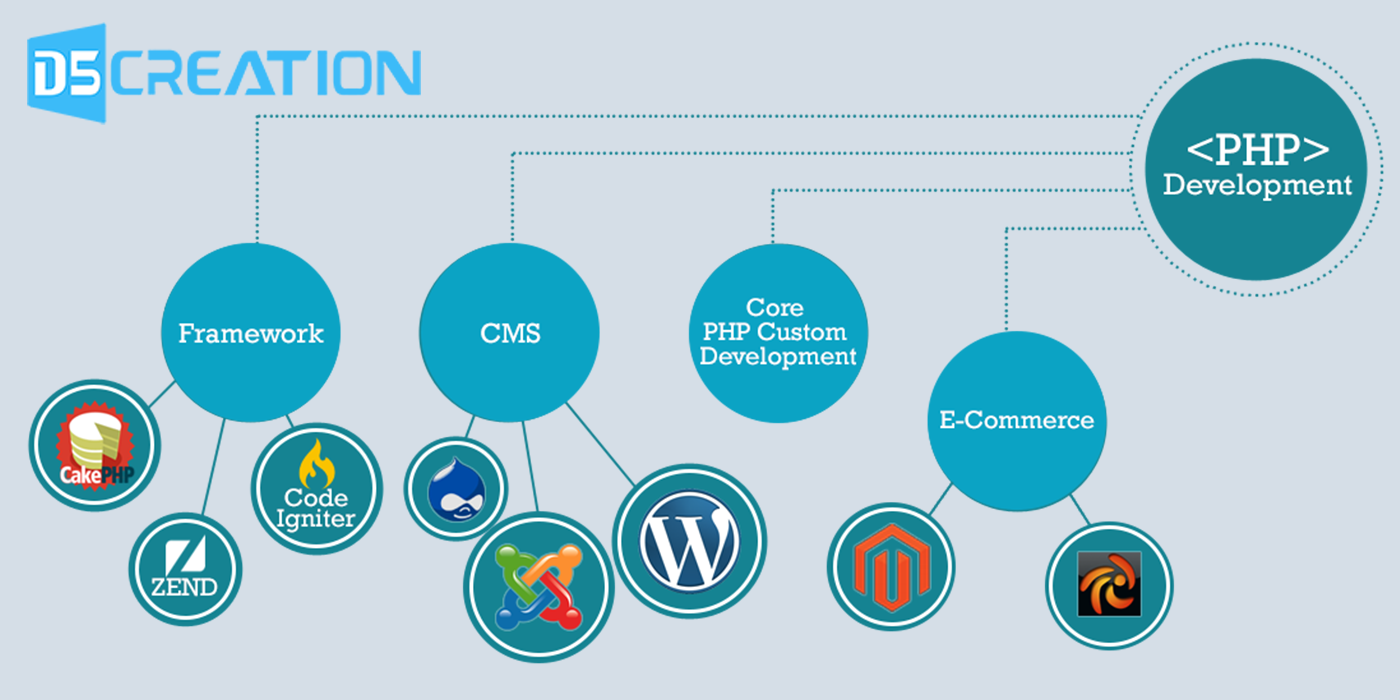Dasiwang: Your Gateway to Trending Insights
Stay updated with the latest news, trends, and insights across various topics.
PHP Development: Where Code Meets Creativity
Unlock the art of PHP development! Discover how code intertwines with creativity to bring your web projects to life. Dive in now!
Unleashing the Power of PHP: A Guide to Creative Web Development
PHP, or Hypertext Preprocessor, is a versatile scripting language that has revolutionized the landscape of web development. With its ability to integrate seamlessly with HTML, W3Schools presents PHP as the ideal tool for creating dynamic web pages. Whether you're working on a simple website or a complex web application, mastering PHP can unleash your creativity and enhance functionality. With features such as session management, built-in support for databases, and extensive libraries, PHP enables developers to craft tailored solutions that cater to specific project needs.
To truly unlock the potential of PHP, consider implementing these best practices:
- Embrace OOP: Object-Oriented Programming helps in organizing code for better maintainability.
- Utilize Frameworks: Frameworks like Laravel and Symfony provide robust tools and libraries to expedite development.
- Stay Updated: The PHP landscape is always evolving, so regularly check resources like PHP Manual for the latest features.
By incorporating these strategies, you will not only improve your coding skills but also create more efficient and scalable applications.

10 Essential PHP Functions Every Developer Should Know
When it comes to PHP development, mastering a few essential functions can significantly enhance your productivity and efficiency. Here are 10 essential PHP functions every developer should know:
- strlen() - This function returns the length of a string, making it crucial for input validation.
- array_push() - Used to add one or more elements to the end of an array, it's essential for handling dynamic data.
- strpos() - This function locates the position of the first occurrence of a substring in a string, vital for text manipulation.
- json_encode() - Perfect for converting PHP arrays and objects into JSON format, this function is widely used in APIs.
Additionally, these functions also play a critical role in PHP development:
- include() - Use this function to include and evaluate a specified file, fostering modular code.
- count() - This allows developers to count all elements in an array or something in an object, vital for control structures.
- date() - Essential for formatting date and time, it helps in creating user-friendly output.
- array_merge() - Combine two or more arrays into one, facilitating data organization.
- mysqli_connect() - If working with MySQL, this function establishes a connection, crucial for database-driven sites.
For further in-depth reading, you can visit PHP Manual on strlen() and PHP Manual on array_push().
How PHP Empowers Creative Solutions in Web Development
PHP has emerged as a powerful language that empowers developers to craft creative solutions in web development. With its flexibility and extensive functionality, PHP serves as the backbone for dynamic web applications. Developers can harness PHP’s ability to integrate with various databases, adjust to different server environments, and support numerous frameworks. This versatility enables the creation of bespoke solutions tailored to meet unique business needs. Notably, platforms like WordPress and Laravel demonstrate PHP's capability to facilitate innovative web projects with minimal overhead.
Moreover, PHP's extensive community support accelerates the web development process by providing developers with access to a vast array of resources, frameworks, and best practices. Through community-driven tools and libraries, developers can implement complex functionalities without reinventing the wheel. This allows for rapid prototyping and the efficient delivery of high-quality web applications. For example, using PHP alongside Bootstrap can enhance user experience with responsive design, making it easier to craft visually appealing and functional websites. As a result, PHP continuously proves to be an indispensable ally for web developers aiming to push the boundaries of what’s possible online.